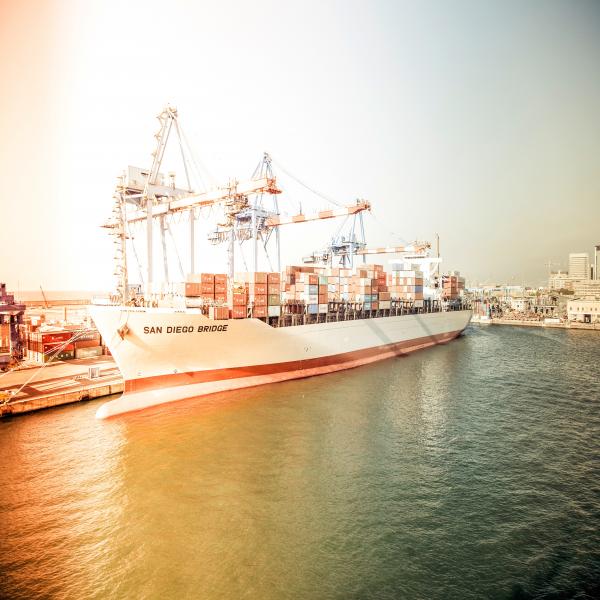Reducing Shipping's Climate Impact
We advance solutions to reduce climate and air pollution from international shipping.
We advance solutions to reduce climate and air pollution from international shipping.

By advocating for strong market-based measures and cleaner alternative fuels, we’re pushing international policymakers and industry leaders to commit to zero-carbon shipping.
If the international shipping industry were a country, it would be among the world’s top carbon-emitting nations. Meanwhile, greenhouse gas emissions from ships are projected to increase by up to 50% by 2050.
In addition to the shipping industry’s climate impact, the sector also contributes to air pollution that harms the health of people living in port communities and coastal cities.
To reduce these harmful emissions, a well-designed, global market-based measure could spur innovation and create incentives for action. Our partners at the Getting to Zero Coalition produced an overview of the policy options to make zero-emission fuels and technology more competitive. They found that a policy package – including a market-based measure, fuel mandates and national efforts – could enable an effective and equitable transition.

The International Maritime Organization (IMO), the United Nations agency responsible for regulating shipping, can set the shipping industry on a path to rapid decarbonization.
We explored the legal bases by which the IMO may act to address climate pollution from ships, finding that there is a clear path for the quick adoption of effective and enforceable policies. The IMO has a long track record in adopting impactful global measures and action on climate change should be no different.

The shipping sector is at the cusp of a dramatic fuel and technological shift that could slash climate and air pollution. One of the most promising solutions for the industry is to invest in and use cleaner alternative fuels.
We are producing collaborative research that examines which alternative fuels are most promising for the shipping industry, as well as how countries can take advantage of the economic opportunity. We also looked at the International Civil Aviation Organization’s Sustainable Aviation Fuels frameworks and its applicability for the shipping sector.

The shipping industry and business community can be a key component of climate leadership. We work closely with the Mærsk Mc-Kinney Møller Center for Zero Carbon Shipping and the Getting to Zero Coalition to encourage industry to lead the way.
We were also a founding partner in Cargo Owners for Zero Emission Vessels (coZEV), a cargo owner-led platform to accelerate shipping decarbonization. CoZEV members—including companies such as Amazon, Unilever and Patagonia—have committed to zero-carbon shipping by 2040.

The shipping sector needs to look beyond carbon and take into account other greenhouse gases. Methane has more than 80 times the warming power of carbon dioxide over the first 20 years after it reaches the atmosphere. At least 25% of today’s climate impact is driven by methane from human activity. We are working to increase awareness of the importance of reducing and eliminating methane emissions, particularly from liquified natural gas (LNG). In addition to methane slip from ships, there may be harmful methane leaks that occur during extraction of natural gas, processing, and throughout the supply chain.

Shipmap.org generates a map of the movements from the global merchant fleet over the course of 2012 and provides a counter for emitted CO2 (in thousand tonnes) and maximum freight carried by represented vessels (varying units).